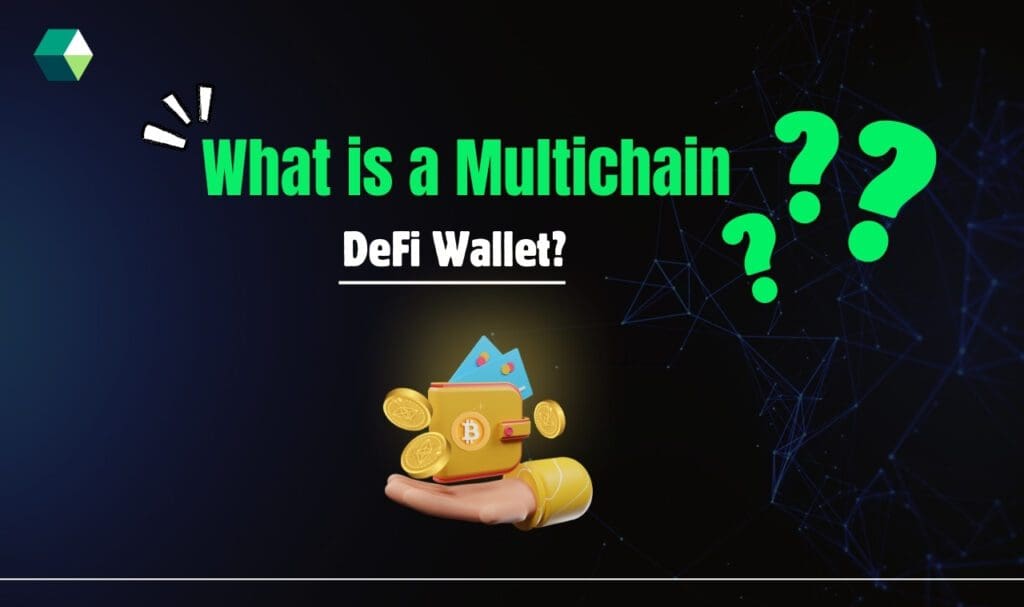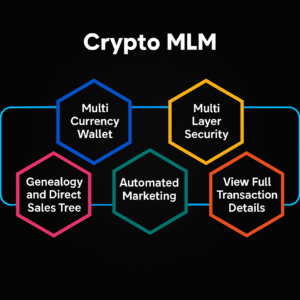
Managing digital assets across multiple blockchain networks is becoming increasingly challenging as the cryptocurrency ecosystem grows. With the rise of decentralized finance (DeFi), users need flexible solutions to handle diverse cryptocurrencies, interact with multiple networks, and access various DeFi applications seamlessly. This is where Cross-Chain DeFi Wallets come into play.
Cross-Chain crypto wallet creation is designed to simplify cryptocurrency management, enabling users to send, receive, store, and trade digital assets across different blockchains effortlessly. This article explores the importance of Cross-Chain DeFi Wallets, their benefits, essential features, and the role of specialized development companies like Nadcab Labs in creating secure and scalable solutions.
What is a Cross-Chain DeFi Wallet?
A Cross-Chain DeFi Wallet is a decentralized digital wallet that allows users to interact with multiple blockchain networks from a single platform. Unlike traditional wallets that support only one blockchain, cross-chain wallets provide interoperability, enabling seamless asset management across various networks.
These wallets are particularly useful in the DeFi ecosystem, where users often need to access multiple platforms for activities such as lending, borrowing, yield farming, and staking. By integrating several networks into one interface, cross-chain wallets simplify user experience, reduce the need for multiple wallets, and increase efficiency.
In short, a Cross-Chain DeFi Wallet acts as a bridge between different blockchains, making decentralized finance accessible, secure, and convenient for both beginners and advanced users.
Why Cross-Chain DeFi Wallets are Essential
The cryptocurrency market has expanded rapidly, with thousands of tokens, multiple blockchain networks, and various decentralized applications available. This growth has created a critical need for solutions that can manage digital assets efficiently:
-
Unified Asset Management: Users can track all their cryptocurrencies in a single wallet instead of managing multiple wallets for different blockchains.
-
Seamless DeFi Access: Cross-chain wallets integrate directly with DeFi protocols, allowing users to lend, borrow, stake, and trade without switching platforms.
-
Improved Usability: By reducing complexity, these wallets make blockchain technology more accessible to mainstream users.
-
Enhanced Security: Centralized exchanges and multiple wallets increase vulnerability. Cross-chain wallets offer strong encryption and private key protection for safer asset management.
The need for interoperability, efficiency, and security in managing digital assets has made Cross-Chain DeFi Wallets indispensable tools for both retail investors and institutional users.
Benefits of Cross-Chain DeFi Wallets
1. Interoperability
Cross-Chain DeFi Wallets provide users with access to multiple blockchain networks through a single interface. This ensures smooth interactions with different DeFi protocols and tokens without the hassle of switching wallets or networks.
2. Diverse Asset Support
These wallets allow users to manage multiple cryptocurrencies in one platform. From Bitcoin and Ethereum to newer altcoins and stablecoins, cross-chain wallets enable portfolio diversification and efficient asset allocation.
3. Robust Security
Security is a core feature of Cross-Chain DeFi Wallets. They utilize multi-signature authentication, end-to-end encryption, and two-factor authentication (2FA) to safeguard digital assets and sensitive user information.
4. DeFi Protocol Integration
Users can interact with decentralized finance applications directly from their wallets. Lending, borrowing, yield farming, staking, and trading are all possible without leaving the wallet interface, making cross-chain wallets central to the DeFi experience.
5. User-Friendly Interface
Cross-Chain DeFi Wallets are designed to be intuitive. Even users new to cryptocurrency can navigate different networks, track assets, and execute transactions efficiently. Clear dashboards, portfolio overviews, and transaction histories improve usability.
6. Cross-Chain Swaps
Many wallets include built-in decentralized exchange (DEX) functionality, allowing users to swap tokens across blockchains without relying on centralized exchanges. This reduces transaction time, lowers fees, and enhances security.
Key Features of Cross-Chain DeFi Wallets
To deliver an effective and competitive wallet, certain features are crucial:
-
Multi-Blockchain Support: Manage assets across Ethereum, Binance Smart Chain, Solana, Polygon, and other networks.
-
Decentralized Access: Users control private keys and retain full ownership of their funds, reducing reliance on third parties.
-
DApp Integration: Seamless connection with decentralized applications enables users to explore financial services and other blockchain-based solutions.
-
Portfolio Tracking: Real-time updates on holdings, transactions, and asset performance for better financial management.
-
Security Measures: End-to-end encryption, biometric authentication, and multi-signature wallets to prevent unauthorized access.
-
Cross-Platform Accessibility: Support for iOS, Android, and web platforms ensures users can access their wallets anywhere.
These features make Cross-Chain DeFi Wallets an all-in-one solution for managing digital assets, participating in DeFi, and engaging with multiple blockchain ecosystems efficiently.
Role of Cross-Chain Crypto Wallet Development Companies
Creating a secure, scalable, and user-friendly Cross-Chain DeFi Wallet requires expertise in blockchain development, cybersecurity, and decentralized finance. Professional development companies, like Nadcab Labs, provide end-to-end solutions tailored to business and user requirements.
Key Contributions of Development Companies:
-
Custom Blockchain Solutions: Tailor wallets to meet business-specific needs, supporting multiple networks and tokens.
-
Wallet Development: Build secure wallets with encryption, multi-signature authentication, and backup solutions.
-
Smart Contract Integration: Automate transactions and interactions with DeFi protocols for transparency and security.
-
DeFi App Development: Enable lending, borrowing, staking, yield farming, and other decentralized finance services within the wallet.
-
Exchange and Trading Platform Integration: Provide seamless trading and cross-chain swaps directly from the wallet.
-
Security and Compliance: Ensure regulatory compliance, protect user data, and maintain platform integrity.
By partnering with experienced developers, businesses can offer sophisticated Cross-Chain DeFi Wallets that meet user expectations, scale efficiently, and maintain security in the evolving blockchain ecosystem.
Advantages of Hiring a Professional Wallet Development Team
-
Blockchain Expertise: Developers understand Ethereum, Solana, Binance Smart Chain, and other networks to ensure smooth integration.
-
Faster Development: Experienced teams streamline the process, delivering functional wallets without compromising quality.
-
Ongoing Support: Continuous maintenance, bug fixes, and security updates keep the wallet safe and up-to-date.
-
User-Centric Design: Professionals create intuitive interfaces that enhance user adoption and satisfaction.
-
Cost Efficiency: Ready-made frameworks and experienced teams reduce development costs and time-to-market.
Future of Cross-Chain DeFi Wallets
As blockchain adoption grows, Cross-Chain DeFi Wallets will continue to play a pivotal role in digital finance. Key trends include:
-
Greater Interoperability: Integration with more blockchain networks and protocols.
-
Advanced Security: Use of AI-based threat detection, hardware wallet integration, and biometric authentication.
-
DeFi Expansion: Support for new DeFi products like synthetic assets, NFTs, and tokenized real-world assets.
-
Cross-Platform Functionality: Seamless use across mobile, desktop, and web environments.
-
User Empowerment: Greater control over funds, data privacy, and financial decision-making.
With these advancements, cross-chain wallets will not only simplify asset management but also empower users to participate fully in the decentralized economy.
Final Words
Cross-Chain DeFi wallets are transforming the way users manage and interact with digital assets. By offering interoperability, enhanced security, DeFi integration, and user-friendly interfaces, these wallets have become essential tools for modern cryptocurrency users.
Partnering with a specialized cross-chain crypto wallet firm like Nadcab Labs ensures that businesses deliver secure, scalable, and feature-rich wallets that meet the demands of the growing blockchain ecosystem. As digital finance continues to evolve, cross-chain wallets will remain a cornerstone of decentralized asset management, enabling users to explore the full potential of DeFi safely and efficiently.






